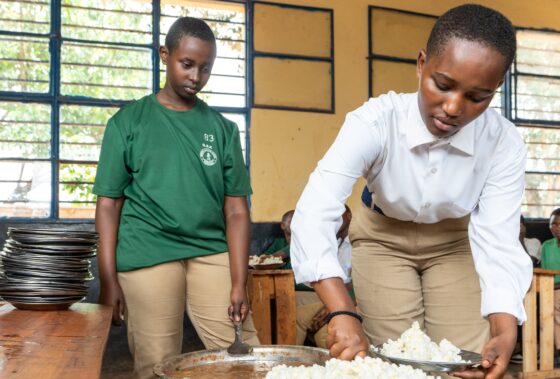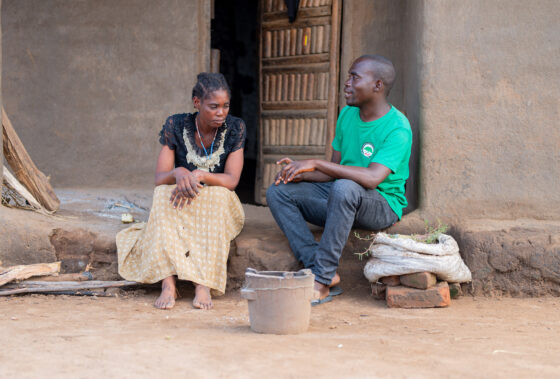In Mballing, Senegal, women fish processors are transforming their livelihoods with the innovative Nopalé oven — reducing smoke, improving health, boosting income, and promoting sustainability. Meet Mame Rohhaya and discover how cleaner technology is empowering female entrepreneurs and redefining traditional fish processing.
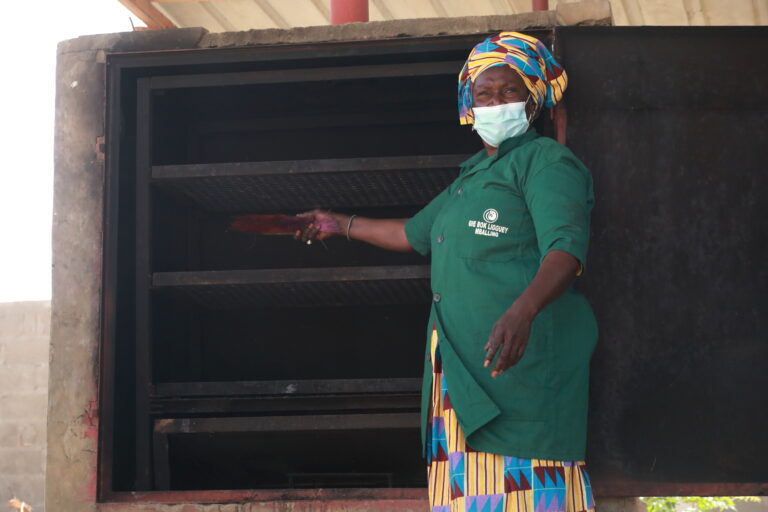
It’s just before noon in the small coastal community of Mballing on the outskirts of Mbour, about 80 km south of Dakar, Senegal. The artisanal fishers have landed their morning catch, and the nearby fish processing site is abuzz with activity. Not too long ago, smoke used to rise thick and heavy from open fires where fish was smoked daily. For Mame Rokhaya Diop, manager of the fish processing unit for the women processors in Mballing, and the women who work with her, this smoke was not just a nuisance, it was a silent threat. But now, the air is clear, and a group of women are loading hundreds of kilos of fish at a time into a new, innovative oven.
A cleaner future for fish processors
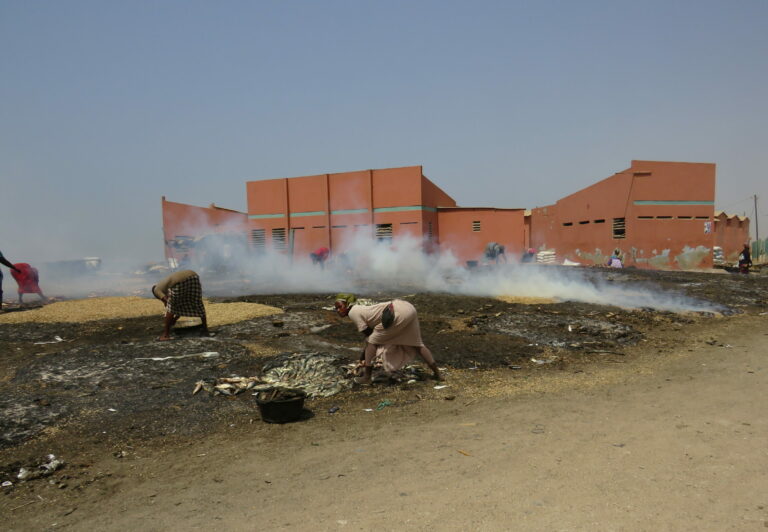
“We used traditional techniques by smoking fish directly on the ground,” recalls Mame Rokhaya, “Which was really not suitable as it didn’t meet hygiene and quality standards.” The traditional smoking methods Mame Rokhaya and her colleagues previously used also consumed vast amounts of firewood and exposed them to hazardous smoke. The health risks were serious; respiratory and eye problems cast a shadow over their daily work.
That began to change with the introduction of the Nopalé oven, an innovative fish-smoking technology provided by EnDev. “At first, we didn’t think the oven could produce such high-quality results,” Mame Rokhaya admits; however, initial doubts quickly dissipated as they saw how good the quality of the smoked fish was. “Our first time using the Nopalé oven prototype was difficult, but gradually we realised that the ovens are easy to use, and the quality is excellent.”
The ovens are easy to use, and the quality is excellent.
Mame Rokhaya Diop, manager of the fish processing unit for the women processors in Mballing
The Nopalé oven has made a big difference for the women at the Mballing Mbal fish processing site: it uses about 85% less wood and produces almost no smoke. Better still, it preserves more of the fish’s weight after processing. With higher yields and a better-quality smoked fish, their incomes have risen.
Empowering women entrepreneurs
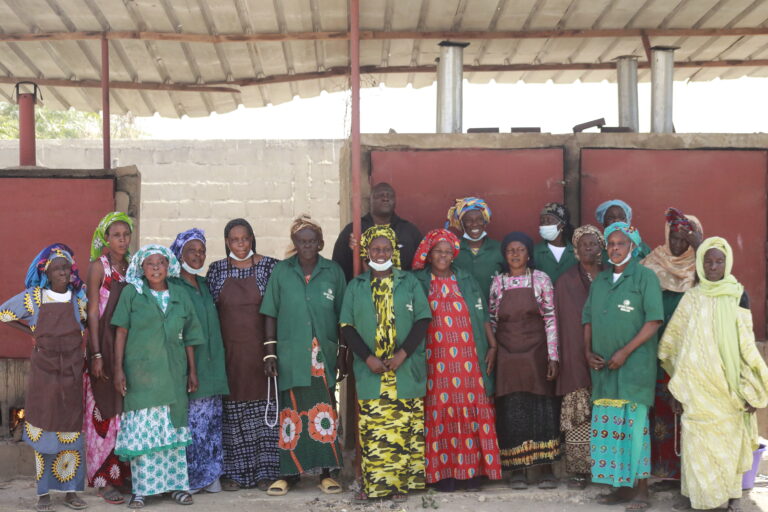
For all the women at the Mballing Mbal fish processing site, the oven has become more than just an efficient tool – it’s about creating cleaner air, earning more income, and building a sustainable livelihood for the future.
Mame Rokhaya also leads the Bool Ligguey de Mballing, a federation of 20 women’s economic interest groups involved in fish processing activities such as smoking, fermenting, and salting. These groups enable women to pool their resources and gain access to savings and microfinance schemes. For example, the women now set aside a portion of the profits to invest in maintaining and repairing the ovens, ensuring long-term sustainability. Mame Rokhaya dreams of self-sufficiency for her group, no longer dependent on microloans, but powered by the strength and innovation of its women. With every batch of fish they smoke, they are rewriting the story of women’s work in Senegal – healthier, stronger, and more empowered than ever before.






